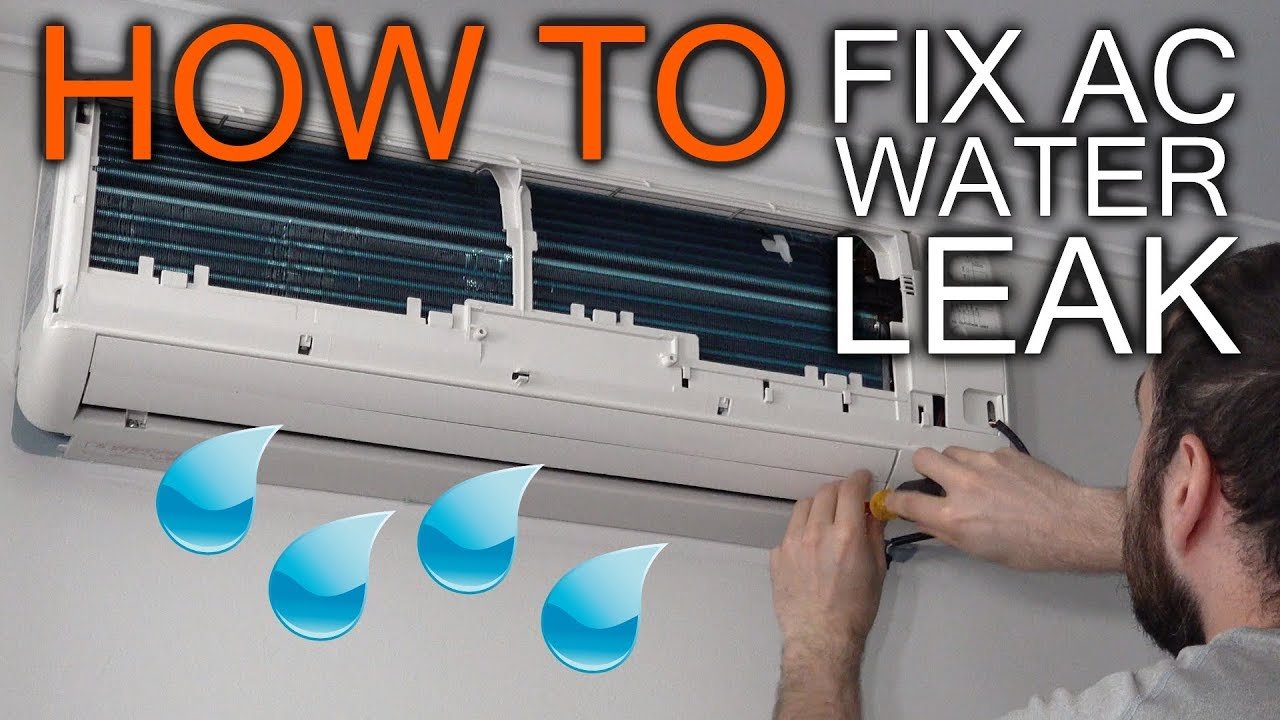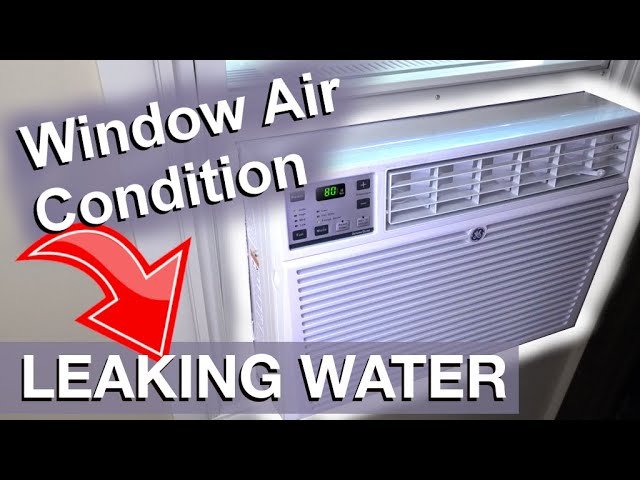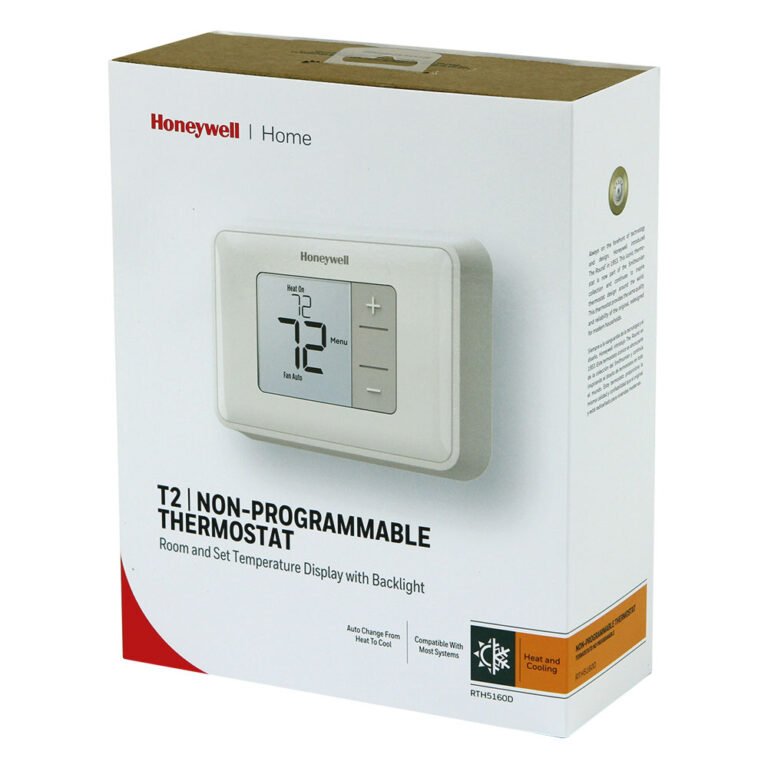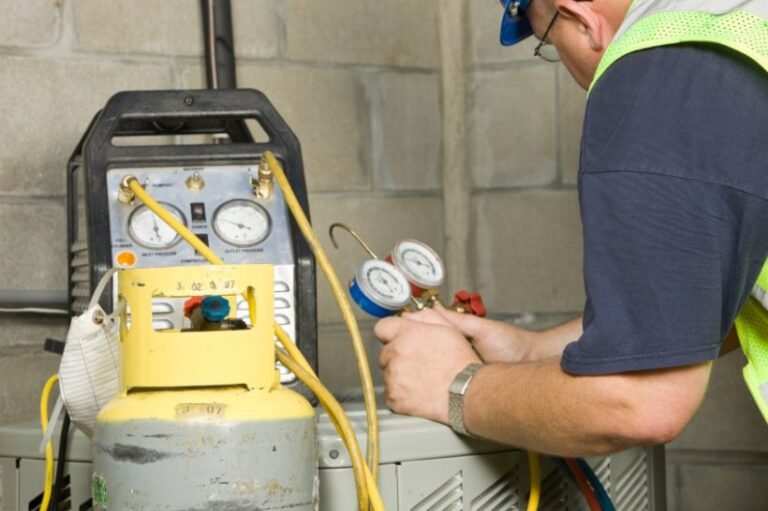Why is My Split System Leaking Water? Find the Solution Now!
If your split system is leaking water, it may be due to a clogged condensate drain line or a malfunctioning condensate pump.
Common Causes Of Split System Water Leaks
Leaking water from a split system air conditioner is a common issue that many homeowners face. This problem can be caused by various factors, including incorrect installation, clogged condensate drains, and refrigerant leaks.
Incorrect installation of the split system unit can lead to water leaks. If the unit is not positioned correctly or the drainage system is not installed properly, water may accumulate and leak from the unit. It is important to hire a professional HVAC technician who can ensure the unit is installed correctly.
Clogged condensate drains are another potential cause of water leaks. Over time, condensate drains can become clogged with dirt, debris, or algae, preventing water from draining properly. Regular maintenance and cleaning of the condensate drains can help prevent clogs and subsequent water leaks.
Refrigerant leaks can also contribute to water leakage in a split system. If there is a refrigerant leak, the evaporator coil may freeze, leading to water leakage when the ice melts. It is crucial to have any refrigerant leaks repaired promptly to prevent further damage to the unit.
Incorrect Installation
One common reason for a split system to leak water is incorrect installation. This can happen due to several factors, including improper positioning of the indoor unit. If the unit is not installed at the correct angle, it may not be able to drain water properly, leading to leakage. Another installation issue that can cause water leakage is insufficient insulation. If there is not enough insulation around the system’s refrigerant lines, condensation can form and lead to water dripping from the unit.
Additionally, airflow obstruction can also cause freezing and melting, resulting in water leakage. When the airflow is restricted, the evaporator coil can freeze, causing ice to build up. Once the unit shuts off and the ice starts to melt, it can overflow the condensate drain pan and create a water leak.
| Common Causes of Split System Water Leakage |
| Incorrect Installation |
| – Improper positioning of the indoor unit |
| – Insufficient insulation causing condensation |
| – Airflow obstruction leading to freezing and melting |
If you notice water leakage from your split system, it is important to address the issue promptly. Contacting a professional HVAC technician will help diagnose the specific cause of the leakage and provide the necessary repairs or adjustments to prevent further damage.
Clogged Condensate Drains
Leaking water from a split system can be a frustrating issue to deal with. One common reason for this problem is clogged condensate drains. The accumulation of dirt and debris in these drains can obstruct the flow of water, causing it to backup and leak. Another culprit is the growth of algae, which can block the drain lines and prevent proper drainage. Additionally, a malfunctioning condensate pump can also lead to clogs and subsequent water leakage. It is important to regularly inspect and clean the condensate drains to prevent these issues from occurring. A proactive approach to maintenance can help prevent water leakage in your split system and keep it functioning efficiently.
Refrigerant Leaks
Refrigerant leaks are a common cause of split system air conditioners leaking water. One possible reason for this is damaged coils that allow the refrigerant to escape. When the coils are damaged, they can create small holes or cracks that allow the refrigerant to leak out. Another reason for refrigerant leaks is low refrigerant levels. When there is not enough refrigerant in the system, it can cause the coils to freeze and thaw repeatedly, which can lead to water leakage. Additionally, corroded connections can also result in refrigerant leakage. Over time, the connections between the different parts of the system can become corroded, creating gaps where refrigerant can escape. It is important to address refrigerant leaks promptly, as they can not only cause water damage, but also impact the efficiency and performance of your split system air conditioner.
How To Resolve Split System Water Leakage Issues
htmlWhy is My Split System Leaking Water
When faced with split system water leakage, it is crucial to seek the expertise of a professional technician who can diagnose and efficiently resolve the issue. They possess the necessary knowledge and experience to identify the underlying cause, such as a clogged drain or a faulty component, and implement suitable repairs.
Regular maintenance is essential to prevent clogs and leaks in a split system. This involves cleaning or replacing air filters, inspecting and clearing drainage lines, checking refrigerant levels, and ensuring proper insulation. By adhering to a maintenance schedule, homeowners can significantly reduce the risk of water leakage and prolong the system’s lifespan.
To address persistent water leakage issues, homeowners can consider installing a condensate pump or drain line flush kits. These devices help ensure proper water drainage, effectively preventing water accumulation and subsequent leakage. Professional technicians can guide homeowners in selecting and installing the most suitable option for their specific split system.
Professional Diagnostics And Repairs
When it comes to split system air conditioners, a common issue that homeowners may encounter is water leakage. If you notice water pooling around your unit, it’s essential to address this problem promptly to prevent any further damage. Professional diagnostics and repairs can help identify the root cause of the leakage and provide effective solutions.
One crucial aspect of the diagnostics process is assessing the installation for errors or defects. This involves checking the positioning of the unit, ensuring proper insulation, and verifying that there are no loose fittings or blocked drainage lines. In addition, inspecting and cleaning condensate drain systems is crucial as clogs or blockages can lead to water leakage.
Another common cause of water leakage is refrigerant leaks and damaged components. A professional technician can identify if there are any refrigerant leaks and take the necessary steps to repair them. Additionally, they can replace any damaged components, such as the condensate pan or coils, to ensure optimal performance of the split system.
Regular Maintenance
Regular maintenance is crucial to prevent a split system from leaking water. Cleaning and changing air filters regularly is one of the most important tasks in maintenance. Dirty air filters can cause reduced airflow and frozen coils, leading to water leakage. Cleaning condenser coils is another important step as dirty coils can hamper the system’s efficiency and cause excessive condensation. Flushing condensate drain lines is also necessary to prevent clogs that can result in water leakage. Regular maintenance not only ensures the smooth functioning of the split system but also extends its lifespan.
Condensate Pump Installation And Drain Line Flush Kits
Leaking water from a split system can be a common issue and is usually a result of improper drainage. One effective solution to this problem is the installation of a condensate pump. The condensate pump helps to remove excess water by pumping it out through a drain line. Additionally, using drain line flush kits can help clear any blockages in the drain lines, ensuring smooth flow of water. Another preventive measure is to add algae tablets to the drain regularly. These tablets help to prevent the growth of algae and mold in the drain, which can further contribute to clogging issues. By implementing these measures, you can effectively control water leakage from your split system and ensure its proper functioning.
Prevention Tips To Avoid Future Water Leaks
A split system air conditioner can sometimes experience water leaks, which can be a cause for concern. However, by following a few prevention tips, you can avoid future water leaks and maintain the optimal performance of your system.
Regularly checking and maintaining the system is important to prevent water leaks. This includes inspecting the drain pipe and ensuring it is clear of any debris or obstructions. Additionally, checking the condensate drain pan for any buildup or blockages can help avoid leaks.
Avoiding DIY installation without proper knowledge is crucial. Improper installation can lead to issues with the drainage system, which can result in water leaks. It is always best to hire a professional to install and maintain your split system.
Another important aspect to consider is ensuring clean and unobstructed airflow. A dirty or clogged air filter can disrupt airflow and cause excessive moisture buildup, leading to water leaks. Regularly cleaning or replacing the air filter is essential to prevent this issue.
By following these prevention tips, you can enjoy a well-functioning split system air conditioner without the worry of water leaks.
Regular System Checks And Maintenance
Regular system checks and maintenance are essential for a split system to prevent water leakage. Checking for loose connections or damaged parts is crucial in ensuring the system operates efficiently. This includes inspecting and tightening any loose connections to prevent water leakage.
Cleaning and clearing debris around the outdoor unit is another important step. Accumulated dirt, leaves, and other debris can obstruct the drain lines and cause water to leak. Regularly cleaning the area around the unit ensures proper drainage and reduces the risk of water leakage.
Inspecting the condensate drain lines for any blockages is also necessary. Over time, these lines can become clogged with dirt, algae, or other debris, which can lead to water leaking from the system. Clearing any blockages from the drain lines helps maintain proper water flow and prevents leakage.
Professional Installation
Professional installation is crucial when it comes to preventing water leakages in split systems. Hiring qualified technicians ensures that the units are installed properly. This includes ensuring correct positioning and insulation of the units, which helps in preventing any potential water leaks. Following the manufacturer’s guidelines for installation is also important, as it ensures that the system is set up correctly and reduces the risk of leaks. A properly installed split system will have all the necessary components in the right place, with proper insulation to prevent condensation and water leakage. By investing in professional installation and adhering to manufacturer’s guidelines, you can minimize the chances of experiencing water leaks in your split system.
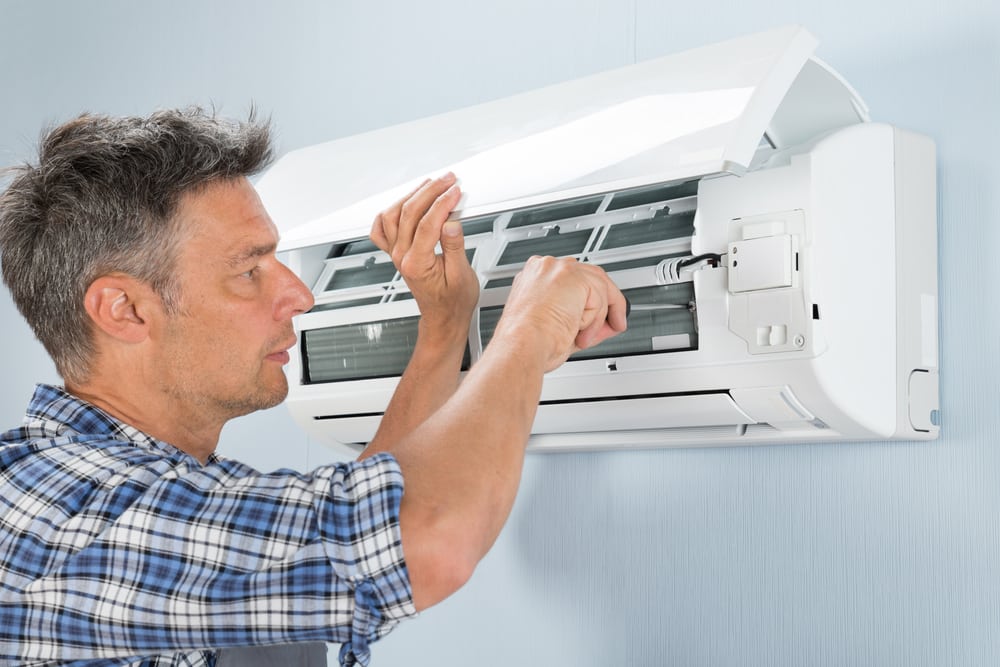
Credit: www.mercuryservices.com.au
Promoting Clean And Unobstructed Airflow
Promoting Clean and Unobstructed Airflow
To prevent water leakage from your split system, it is important to ensure clean and unobstructed airflow. This can be achieved by following a few key practices.
Avoid placing objects near the indoor or outdoor units
Avoid placing any objects near the indoor or outdoor units that could obstruct the airflow. Furniture, curtains, or other items should be kept at a distance from the units to allow for proper ventilation.
Regularly cleaning air filters to maintain efficiency
Regularly cleaning the air filters is crucial for maintaining efficiency and preventing water leakage. Dirty filters can restrict airflow, leading to an accumulation of moisture in the system. By cleaning or replacing the filters as recommended by the manufacturer, you can ensure optimal performance and avoid water leakage issues.
Keeping vents and registers free from obstructions
Another important step is to keep vents and registers free from obstructions. Make sure they are not blocked by furniture, rugs, or other objects. This allows for proper air circulation and helps prevent excess condensation that can lead to water leakage.
Frequently Asked Questions For Why Is My Split System Leaking Water
Why Is My Split System Leaking Water?
Leaking water from a split system is often due to a blocked condensate drain. This can be caused by dirt, debris, or algae buildup in the drainpipe. It’s important to have a professional clean and unclog the drain to prevent further damage to the system and maintain its efficiency.
Can A Dirty Air Filter Cause My Split System To Leak Water?
Yes, a dirty air filter can lead to water leakage in a split system. When the air filter is clogged, it restricts airflow and causes the evaporator coil to freeze. As the ice melts, it can overflow the drain pan and result in water leakage.
Regularly clean or replace your air filter to prevent this issue.
What Could Be The Reason For My Split System Leaking Water Inside The House?
There are several possible reasons for water leaking inside the house from a split system. It could be due to a damaged or disconnected drainage pipe, a malfunctioning condensate pump, or a refrigerant leak. It’s essential to have a professional HVAC technician diagnose and repair the issue to prevent further damage.
Is It Normal For A Split System To Produce Water?
Yes, it is normal for a split system to produce water as a byproduct of the cooling process. This water is supposed to be drained through the condensate drain line to the outside of the system. However, if you notice excessive water leakage or pooling, it may indicate a problem that requires attention.
Conclusion
A split system leaking water can be a common issue with various underlying causes. By understanding the potential culprits such as clogged drains, low refrigerant levels, or a malfunctioning condensate pump, you can take appropriate actions to prevent further damage and ensure optimal performance.
Regular maintenance and professional inspections are essential in identifying and resolving these issues promptly, ensuring your split system operates efficiently and effectively.

